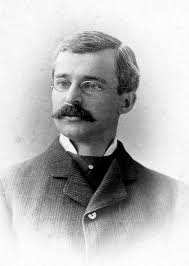记忆方法
将“founder”分解为“found”和“er”,记忆为“创始人”。想象一个人在某个领域“found”(建立)了一家公司或组织,那么他就是这个项目的“founder”。
以上内容由AI生成, 仅供参考和借鉴
中文词源
founder 创建者
来自found, 奠基,创建。
英语词源
- founder
-
founder: [13] Etymologically, founder means ‘sink to the bottom’. Its history can be traced back to Latin fundus ‘bottom’ (source also of English found ‘establish’, fund, and fundamental), which formed the basis of a Vulgar Latin verb *fundorāre. This passed into Old French fondrer, which meant ‘submerge’, but also, by extension, ‘fall in ruins, collapse’ – both of which groups of senses English took over in founder.
=> found, fund, fundamental - founder (v.)
- early 14c. "to send to the bottom" (transitive); late 14c., "to sink or fall" (intransitive), from Old French fondrer "collapse; submerge, sink, fall to the bottom" (Modern French fondrier), from fond "bottom" (12c.), from Latin fundus "bottom, foundation" (see fund (n.)). Not especially of ships in Middle English, where it typically meant "fall to the ground." Figurative use from 1580s. Related: Foundered; foundering.
- founder (n.1)
- "one who establishes, one who sets up or institutes (something)," mid-14c., from Anglo-French fundur, Old French fondeor "founder, originator" (Modern French fondateur), from Latin fundator, agent noun from fundare "to lay a foundation" (see found (v.1)). Fem. form foundress is from early 15c.; also fundatrix (1540s).
- founder (n.2)
- "one who casts metal," c. 1400, agent noun from found (v.2).
权威例句
- 1. The teacher training college put up a plaque to the college's founder.
- 那所教师培训学院为该学院的创立者立了一块纪念牌匾。
- 2. He is the founder of International Sports Management Limited.
- 他是国际体育管理有限公司的创始人。
- 3. Without the founder's drive and direction, the company gradually languished.
- 没有了创始人的斗志与指引,公司逐渐走向没落。
- 4. He was the founder and guiding spirit of New York's Shakespeare Festival.
- 他是纽约莎士比亚戏剧节的创始人及领导者。
- 5. Mr Meridor's father was a comrade-in-arms of the party's founder.
- 梅里多先生的父亲是该党创始人的战友。

